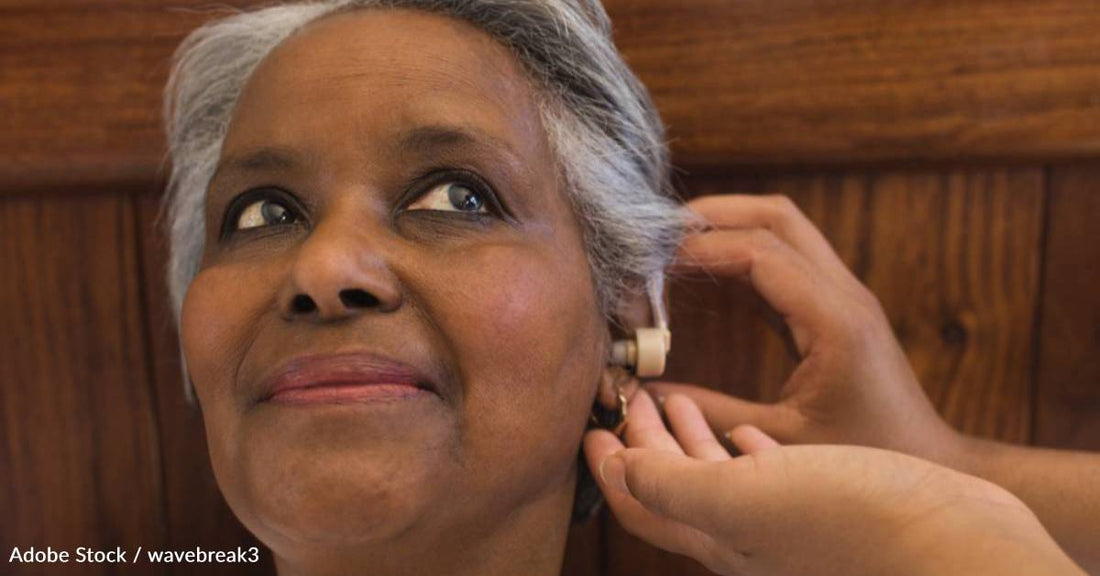Hearing Loss is Linked with a Higher Dementia Risk, But Hearing Aids May Help
Michelle Milliken
Hearing loss is a dementia risk factor, accounting for an estimated 8% of dementia cases. But what happens if people are able to address their hearing impairment? That extra risk may go down, according to new research.
A recent study published in The Lancet Public Health journal looked at how the use of hearing aids impacted dementia risk, finding that it may cut that risk down, putting people who wear them at the same risk as people without hearing impairment.
Dongshan Zhu, study co-author and professor at Shandong University in China, says, "The evidence is building that hearing loss may be the most impactful modifiable risk factor for dementia in midlife, but the effectiveness of hearing aid use on reducing the risk of dementia in the real world has remained unclear. Our study provides the best evidence to date to suggest that hearing aids could be a minimally invasive, cost-effective treatment to mitigate the potential impact of hearing loss on dementia.”
The study involved data from nearly 438,000 participants in the UK Biobank database, a long-term, large scale health database focused on understanding the development of disease. The average age of these participants when they joined the study was 56, and their average follow-up period was 12 years. Approximately 75% of them had no hearing loss, while about 25% of them did. Of those with hearing loss, 11.7% used hearing aids.
Using this data, and controlling for confounding factors, the researchers found that there was a 42% higher risk of all-cause dementia in those with untreated hearing loss, compared with those with normal hearing. However, those who used hearing aids had the same risk as those without hearing impairment. The researchers say this boils down to a 1.7% risk of developing dementia for those with untreated hearing loss and a 1.2% risk for those without hearing impairment and those who have hearing loss but are using hearing aids.
The team says their findings highlight the need to address hearing loss.
Zhu explains, “Hearing loss may begin early in one's 40s, and there is evidence that gradual cognitive decline before a dementia diagnosis can last 20 to 25 years. Our findings highlight the urgent need for the early introduction of hearing aids when someone starts to experience hearing impairment. A group effort from across society is necessary, including raising awareness of hearing loss and the potential links with dementia, increasing accessibility to hearing aids by reducing cost, and more support for primary care workers to screen for hearing impairment, raise awareness, and deliver treatment such as fitting hearing aids.”
The researchers acknowledge some limitations of their study, including the risk of bias in self-reporting and possible missed factors that could provide further protection for people using hearing aids. They stress that more research is also needed to understand why hearing aids and lowered dementia risk appear to be linked.
To read the whole study, click here.




